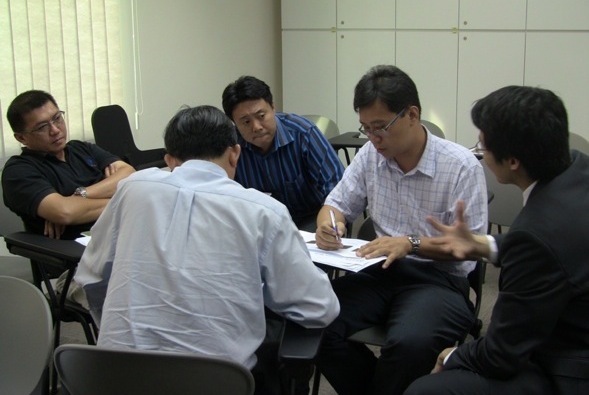When you think about customer service in your company, what comes to mind? Frequent training sessions to drill into them your brand taglines? Or thick brand manuals coated with a layer of dust?
38 members of the Singapore Chinese Chamber of Commerce & Industry (SCCCI) grappled with the issues in customer service during the seminar, “Why customer is not king when it comes to service”, which took place on 21 January 2010.
One of the challenges that service staff face is that they are not empowered with enough knowledge, nor are they expected to be. Instead service staff are given checklists or canned responses and may find it difficult to appease customers when it is not covered in the material.
“They fall into the trap of thinking that ‘the customer is always right’, and are not empowered to tell the customer when they are wrong.” Lawrence Chong, Director for Strategy Development at Consulus, said.
In his introductory address, Chong detailed the challenges that service staff face and how designing a customer experience can be a better starting point. Building confidence in your staff will allow them to recognise how they can be engaged with the brand.
In a nutshell: The design of the service program must be purpose-led.
Lawrence Chong rounded the session off with a recommended framework that can guide managers and business owners in formulating a customer experience.
In a practical workshop segment that took place in the second half, participants drew up the customer service strategy for a brand exercise based on the framework Chong presented. Participants then had an opportunity to present and discuss their solutions.
The atmosphere in the workshop was one of openness and mutual exchange, and there was a general understanding that the design of the customer service programme was of crucial importance for developing service staff who have initiative.





